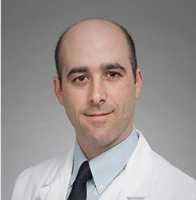
26 Dec Stroke Prevention Should Begin in Young Adults
MedicalResearch.com Interview with:

Dr. Roth
Gregory A. Roth MD MPH
Assistant Professor, Medicine – Cardiology
Adjunct Assistant Professor, Global Health
Adjunct Assistant Professor, Health Metrics Sciences
School of Public Health
University of Washington
Seattle, WA
MedicalResearch.com: What is the background for this study? What are the main findings?
Response: We found that globally, one in four people over age 25 is at risk for stroke during their lifetime. But we also found large geographic variation, including a nearly five-fold difference in lifetime stroke risk worldwide, with the highest risk in East Asia (38.8%), Central Europe (31.7%), and Eastern Europe (31.6%), and the lowest risk in eastern sub-Saharan Africa (11.8%). Chinese men and Latvian women had the world’s highest estimated lifetime stroke risk in 2016. The lifetime stroke risk on average for 25-year-olds in 2016 ranges from 8% to 39%, depending on the country in which they live.
This is the first time a study has produced estimates of lifetime stroke risk starting at age 25, whereas previous studies begin at age 45. These findings suggest that adults need to think about their long-term health risks, including stroke, at a much younger age. Additionally, one’s risk of stroke over the course of your lifetime depends on where you live. Given the burden of stroke among adults is dependent on modifiable risk factors and the characteristics of health systems, our findings may be useful for long-term planning, especially in terms of prevention and public education.
MedicalResearch.com: What should readers take away from your report?
Response: Younger adults should be made aware, especially by their physicians, that they can prevent stroke and other vascular diseases later in life by taking actions at a much earlier age. These actions include adopting a healthy lifestyle and diet, exercising regularly, and avoiding tobacco and alcohol.
MedicalResearch.com: What recommendations do you have for future research as a result of this work?
Response: Health systems and clinicians need to focus on stroke prevention at much younger ages than 45 years; however, more research is needed on what constitutes proper prevention for younger adults. Specifically, more data on stroke incidence and fatality rates are needed, as sufficient data on these measures are currently lacking for many countries.
MedicalResearch.com: Is there anything else you would like to add?
Response: Researchers only analyzed the lifetime risk of first-ever stroke, and not recurrent strokes. And the analysis does not include pediatric stroke, as stroke burden among adults is more dependent on modifiable risk factors and the characteristics of health systems. In contrast, pediatric strokes usually are caused by a wider range of rarer conditions (e.g., cancer, clotting disorders, trauma, etc.).
No disclosures.
Citation:
Global, Regional, and Country-Specific Lifetime Risks of Stroke, 1990 and 2016
The GBD 2016 Lifetime Risk of Stroke Collaborators
December 20, 2018
N Engl J Med 2018; 379:2429-2437
DOI: 10.1056/NEJMoa1804492
[wysija_form id=”3″]
[last-modified]
The information on MedicalResearch.com is provided for educational purposes only, and is in no way intended to diagnose, cure, or treat any medical or other condition. Always seek the advice of your physician or other qualified health and ask your doctor any questions you may have regarding a medical condition. In addition to all other limitations and disclaimers in this agreement, service provider and its third party providers disclaim any liability or loss in connection with the content provided on this website.
Last Updated on December 26, 2018 by Marie Benz MD FAAD
